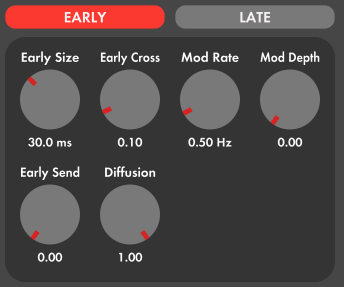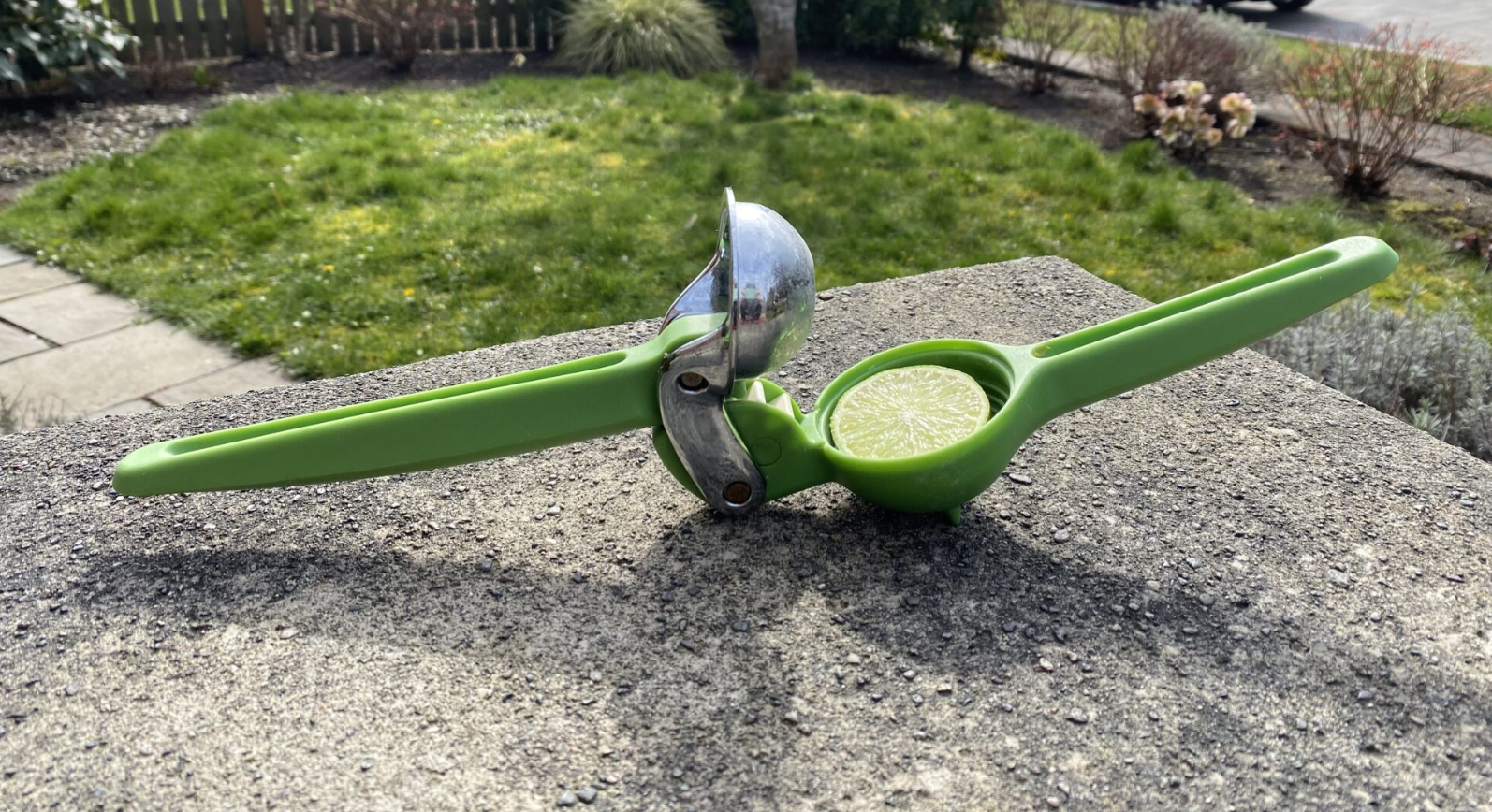Subtotal: $50 USD
ValhallaRoom: The Early Controls
ValhallaRoom can be viewed as having two separate sections for the reverberation, Early and Late. The Early controls can be accessed by pressing the Early button in the top of the plugin (under the VALHALLA ROOM text):
The Early section can be heard in isolation by setting the DEPTH slider to 0%. Higher DEPTH settings will crossfade between the Early and Late reverberation, with a setting of 100% resulting in the output coming entirely from the Late reverberation.
A quick overview of the controls:
- Early Size: adjusts the length of the Early energy impulse, in milliseconds. A length of 10 to 50 milliseconds is useful for simulating the early reflections found in a smaller acoustic space, or for creating a wider stereo image without a strong reverberant decay (when DEPTH is set to 0%). Early Size settings between 50 and 100 milliseconds can create the impression of a “compressed” room, where the initial attack is squashed by a limiter or tape saturation. Settings above 100 milliseconds will sound like a “gated” reverb in isolation, and can create a slower attack when the Early energy is sent to the Late reverb (see Early Send for details). Larger Size settings are useful for creating long gated reverbs.
- Early Cross: controls the stereo cross-mixing of the Early Energy. An Early Cross setting of 0% will result in no mixing of energy between left and right channels; a signal in the left channel will not generate any early reflections in the right channel. Higher settings will mix the energy between the left and right channels, and will also increase the echo density. Generally speaking, lower settings of Early Cross are useful in preserving the spatial imaging of a mix.
- Mod Rate: Controls the base modulation frequency of the Early chorusing, in Hertz. This is an “average” rate, as there is a fair amount of randomization used for the chorusing. Values around 0.25 to 0.5 Hz are useful for warming up the sound, while around 1 to 2 Hz is useful for adding a bit of “string ensemble” effect to the sound.
- Mod Depth: Controls the depth of the Early chorusing. In general, you will want to keep this low when creating realistic smaller spaces, and turn it up when creating large spaces or emulating older digital reverbs.
- Early Send: Controls how much of the Early reverberation is fed into the Late reverb. The Early reverberation has been designed to interface nicely with the Late reverberation, such that sending the Early signal into the Late reverb produces a relatively colorless enhancement of echo density. A value of 0 corresponds to no send (i.e. the Early and Late reverbs are purely in parallel) while 1.0 results in the maximum send to the Late reverb. A few suggested settings:
- Set Early Size to 10-50 msec, and Early Send to 1.0, to create a dense Late reverb.
- Set Early Size to 150 msec or more, and Early Send to 1.0, to create a slow onset to the Late reverberation. This is useful for simulating very large halls and cathedrals, as well as adding clarity to the input signal.
- Set Early Size to 70-100 msec, Early Send to 0.0, the Late Size to a smaller value, and Depth to 0.5, in order to simulate a smaller space that has a somewhat compressed attack.
- Diffusion: Controls the echo density of the Early reverb. Low settings result in a less dense Early reverb, while higher settings increase the echo density. Unlike many algorithmic reverbs, high Diffusion settings will not result in a metallic decay with vocals and drums, so feel free to keep Diffusion set at 1.0 for most purposes. Low settings of Diffusion, combined with larger Early Size settings, can be useful in creating strange multitap echo sounds.
 Valhalla Delay
Valhalla Delay 






just tell me where to put the knobs so it sounds like a lexicon
😉
I’ll tell you EXACTLY where to put the knobs…
😉
i only use 3 reverbs now in my mix. Valhalla Room, Valhalla Shimmer and Softube TSAR!